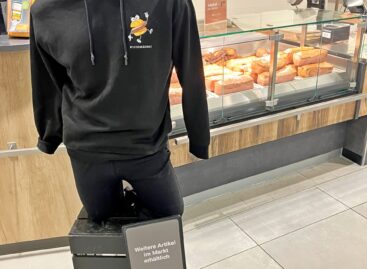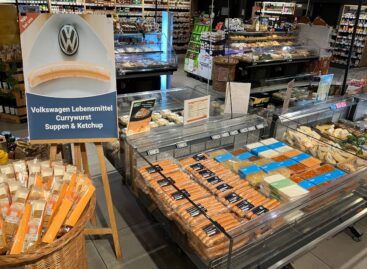Back to the Roots – The Renaissance of the hard-discounter
The time is ripe for a renaissance of the hard discount format in Europe. But a winning strategy will not necessarily mean turning back the clock and copying the highly efficient, private label-driven Aldi and Lidl concepts from the turn of the century. The new breed of no-frills format could on the contrary be based on national and local brands.

Mere store in Lithuania – Photo: Sebastian Rennack
At first glance, the model seems counterintuitive. Consumer research across Europe shows that shoppers are looking for value and more often than in the past reach for private labels. Across Europe, the value share of private label is growing at the expense of branded products. According to PLMA data, private label accounts for 38.5% of the European grocery market in 2023, up 1.5 percentage points from 37.0% in 2022. Retailers are ‘cutting the tail’, reducing ranges, by evaluating branded assortments, particularly in ambient ranges, on an item-by-item basis to meet financial targets. As a result, layouts are being defragmented, with brands generally suffering the most.
And the new concept is not about A-brands and category leaders. Global brand heavyweights can hold their own, but lesser-known small and medium-sized national brand producers are often unable to match the sales volumes of international retail giants, let alone the demands for a specific quality-price mix. Meanwhile, alternative retail segments such as regional networks and independent retailers are becoming less attractive. Both are losing market share year after year, either being integrated into larger competitors or squeezed out of the market altogether.
Russian hard discount operator Torgservis could benefit from this development. The company has been working on its comeback in Europe in recent months, relaunching operations in Belgium and Spain under the Mere and My Price banners. Mere’s biggest Achilles heel when it pulled out of Western Europe in 2022 was its Russian-sourced range. Over the past year, the retailer has worked to reorganize its supply lines. Russian products are now almost non-existent on the shop floor. They have mainly been replaced by branded products, many of them from second and third-tier national manufacturers.
And while before the start of the war in Ukraine Torgservis was predicted to succeed only in the least affluent parts of Europe, two years of record high inflation rates may have brightened the outlook for the ultra-low-cost format. As recently released data from Eurostat shows, Europe’s economies with above-average purchasing power in the recent past have seen the biggest decline in purchasing power parities (PPPs), a measure of relative living standards. In Europe’s largest economy, Germany, the PPP index has fallen by 3.4% to 115 between 2021 and 2023, compared to the EU-27 average of 100. In France, the index fell by 1.9% to 101 over the same period, while in the Netherlands and Belgium it dropped by 0.8% to 130 and by 2.5% to 117, respectively.
Competition from established discount giants is unlikely. Lidl or Aldi are not expected to enter this market segment. Aldi Süd seems to have recognized the niche opening up as part of its upwards evolution into the supermarket segment. In the middle of last year, Aldi Süd started to test an umbrella brand called ‘Einfach gut’ (‘simply good’), which is positioned below the price level of its existing entry-level products. However, there has been no major marketing push or roll-out across all categories. Torgservis and other emerging no-frills operators such as Vollmart in Poland might become the ultimate beneficiaries of the current economic downturn, with the opportunity to tap into this so far unoccupied market niche.
Related news
From the shopfloor: Volkswagen expands its grocery business
🎧 Hallgasd a cikket: Lejátszás Szünet Folytatás Leállítás Nyelv: Auto…
Read more >Related news
GDP growth in OECD member countries slowed to 0.3 percent in the last quarter of last year
🎧 Hallgasd a cikket: Lejátszás Szünet Folytatás Leállítás Nyelv: Auto…
Read more >








